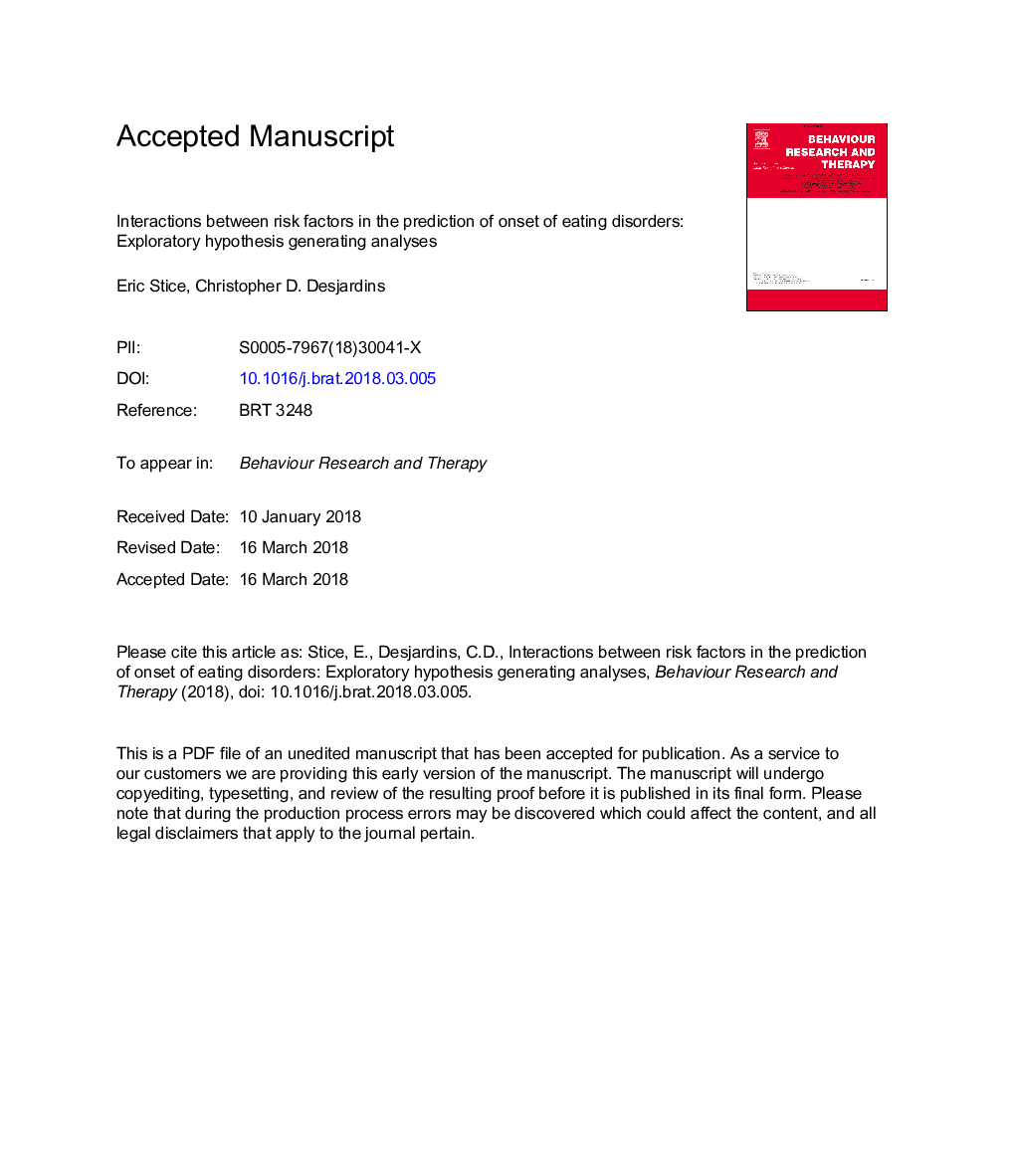| Article ID | Journal | Published Year | Pages | File Type |
|---|---|---|---|---|
| 7261817 | Behaviour Research and Therapy | 2018 | 41 Pages |
Abstract
Low BMI was the most potent predictor of AN onset, and body dissatisfaction amplified this relation. Overeating was the most potent predictor of BN onset, and positive expectancies for thinness and body dissatisfaction amplified this relation. Body dissatisfaction was the most potent predictor of BED onset, and overeating, low dieting, and thin-ideal internalization amplified this relation. Dieting was the most potent predictor of PD onset, and negative affect and positive expectancies for thinness amplified this relation. Conclusions: Results provided evidence of amplifying interactions between risk factors suggestive of cumulative risk processes that were distinct for each disorder; future confirmatory studies should test the interactive hypotheses generated by these analyses. If hypotheses are confirmed, results may allow interventionists to target ultra high-risk subpopulations with more intensive prevention programs that are uniquely tailored for each eating disorder, potentially improving the yield of prevention efforts.
Keywords
Related Topics
Health Sciences
Medicine and Dentistry
Psychiatry and Mental Health
Authors
Eric Stice, Christopher D. Desjardins,
